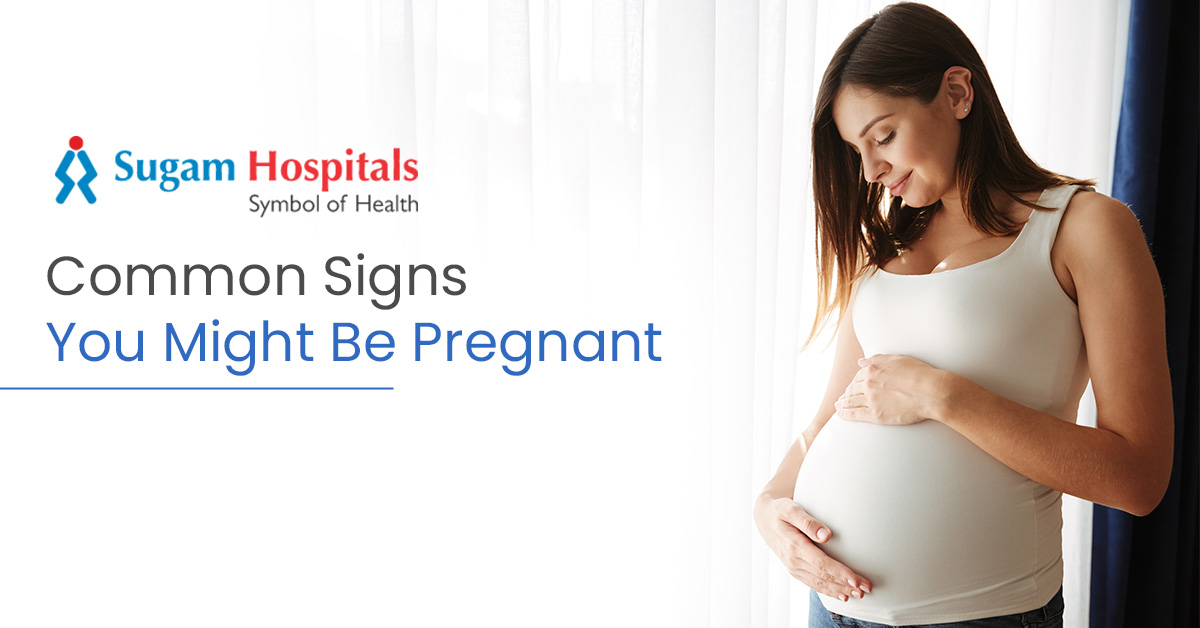Common Signs You Might Be Pregnant

Common Signs You Might Be Pregnant
August 25, 2025 by adminPregnancy is one of the most informative experiences a woman has in her life, and the initial days are commonly questioned. For many, the first manifestations of pregnancy can seem like pre-menstrual symptoms, which can be easily confused with one another.
However, there are subtle combinations of changes to your body that are important to assess, especially if you are planning a baby or are unsure of your status after missing a period.
Take a look at the most common signs which are indicative of pregnancy.
1. Missed Period
For many women, a missed period is the first sign that leads them to take a pregnancy test. This is usually a key indicator, though not always definitive as other factors, such as stress, rapid changes in weight or hormone levels can also affect timing of periods. If you miss a period while on a regular cycle, then pregnancy could be the cause.
To confirm pregnancy, home pregnancy kits can be a quick first option, but it’s always important to run results past your doctor to confirm the level of accuracy.
2. Breast Discomfort and Changes
Hormonal fluctuations during early pregnancy can cause breasts to feel sore, heavy or unusually tender. Some women report darker areolas or small bumps developing around the more tender areas of the breast. These changes are happening because your body is preparing for breastfeeding.
Breast tenderness usually becomes less discomforting as pregnancy progresses, but it is simultaneously one of the earliest physical signs women note.
3. Tiredness and Low Energy
Another early symptom is feeling tired even though you feel like you’re getting enough sleep. Elevated levels of progesterone, the hormone associated with pregnancy can create drowsiness and your body will also begin to consume even more energy to support your growing embryo.
Some small steps to help deal with tiredness in the first trimester can include naps, eating whole foods and drinking plenty of fluids.
4. Morning Sickness and Nausea
Nausea that may or may not accompany vomiting, is probably the most noticeable sign of pregnancy. It doesn’t have to be restricted to the morning and could happen any time of day.
For some women nausea begins just as early as two weeks after conception, while others may never experience it at all. Eating smaller meals, mixing ginger tea and avoiding any strong smells could help alleviate the discomfort of nausea and in the most severe cases, seek medical consultation.
5. Frequent Urination
If you find yourself going to the washroom more than you usually do, it can be an early sign of pregnancy. Hormonal changes during pregnancy increase blood flow to the kidneys, which allow them to work faster. This creates a situation where your bladder fills with urine more quickly.
Likely you will experience this symptom by the sixth week of your pregnancy if you are pregnant and as the uterus expands and compresses the bladder, which may carry on throughout the pregnancy.
6. Food Cravings and Aversions
Changes in your food cravings and aversions are related to the hormonal changes you are experiencing. Many women will crave foods that are brand new and some will find that they can now barely tolerate the smell of coffee or fried foods, two usual staples in their diets.
As long as you are adequately balancing your nutritional intake, these changes do not pose a threat to your health or to the baby’s development.
7. Mood Swings
Hormonal shifts certainly affect physical changes, but they also impact your emotions. Mood swings, irritability and feeling overly emotional may all be normal parts of early pregnancy.
While this is all normal, it is a good idea to surround yourself with a supportive environment and try stress-relieving projects like light exercise or meditation.
8. Light spotting and cramping
Some women may notice light spotting, which is referred to as implantation bleeding, at the time that the fertilized egg implants into the womb. This occurs generally a few days before their typical period and is much lighter than menstrual flow.
Very mild cramping can accompany the spotting, as well and it may feel very much like premenstrual cramping. If the bleeding is heavy or severe pain accompanies it, it is essential to consult a physician.
9. Headaches and dizziness
Mild headaches or dizziness can occur due to circulation changes and induced hormones, which usually is not permanent & is often manageable with enough rest, hydration, and a healthy diet.
10. Constipation and Bloating
Increased progesterone may decrease gut motility, causing constipation and bloating. Eating more fiber, plenty of water and light physical activity may help this situation.
Though the above are very strong indicators of pregnancy, there are other possibilities. The best way to know for sure is to take a pregnancy test and to see a doctor for confirmation. Every woman’s experience can differ. Some women may have a lot of these things happening, while others might only have a few. Generally, every journey is unique to the individual.
At Sugam Hospital, women have access to specialists who are cared practitioners and will take you through a healthy pregnancy journey in safe hands.
If you would like to experience this individualized approach to care and if you are in Chrompet, you can visit the best gynecologist in Chrompet near you and take those meaningful steps towards motherhood confidently.

